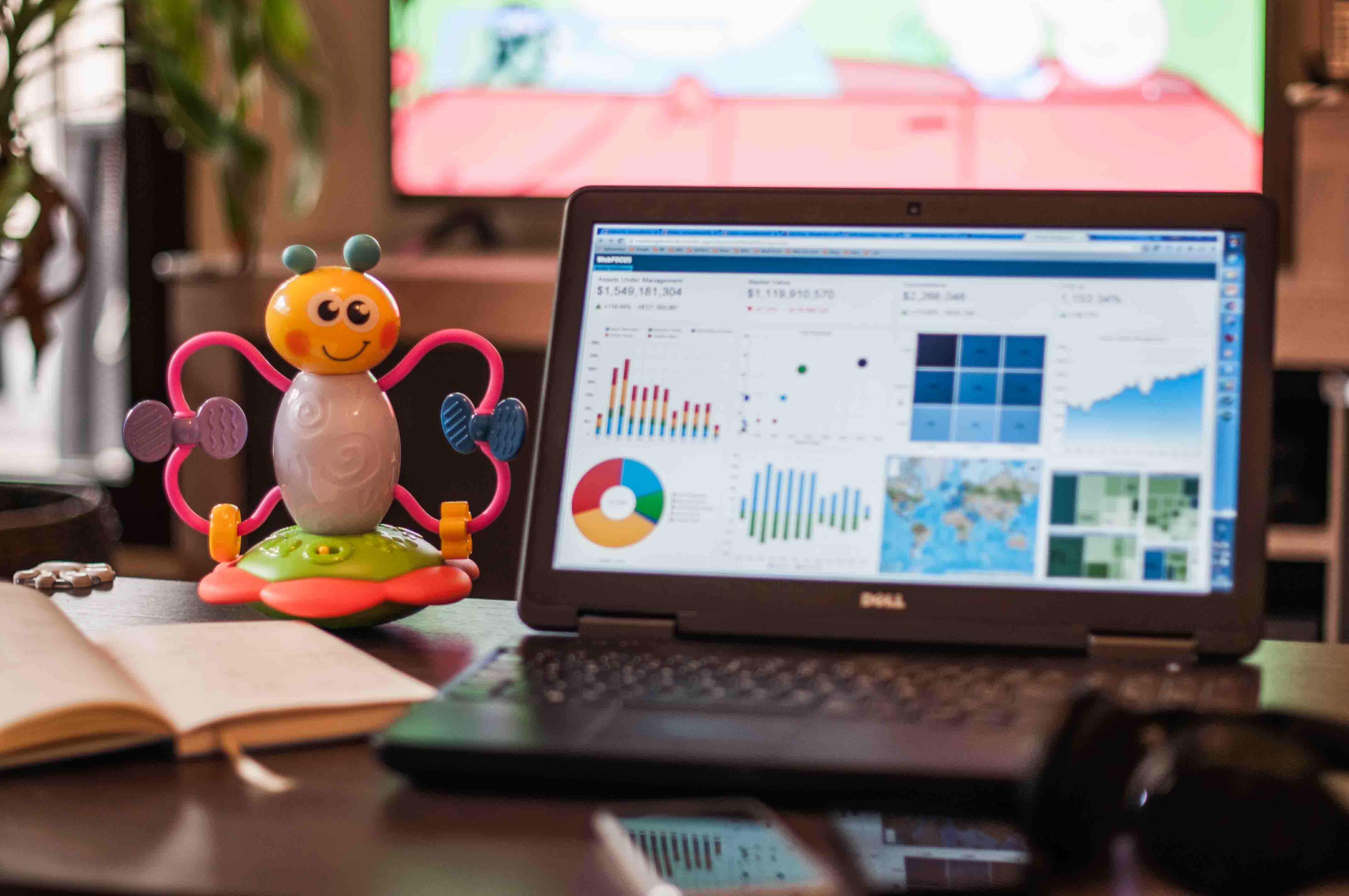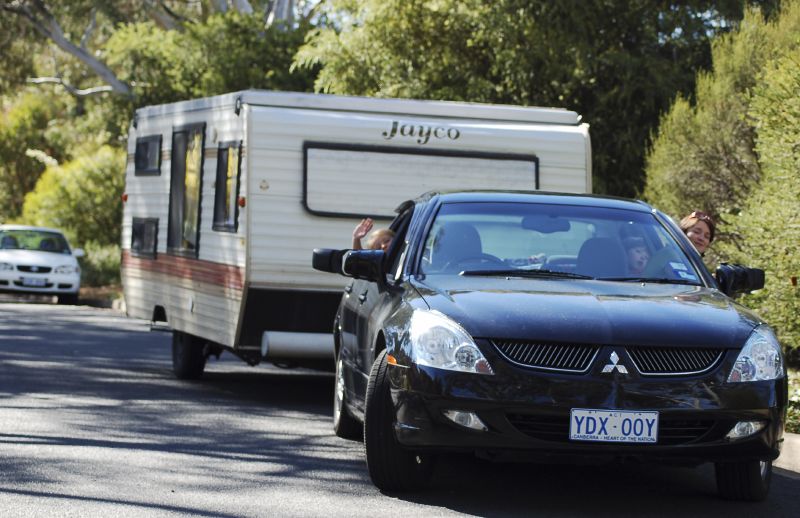12-06-2020
A feminist view of the COVID-19 crisis and tourism
Núria Abellan, Carla Izcara, Marta Salvador | Alba SudTourism is in the spotlight due to the impacts derived from the pandemic and the future uncertainty. Consequently, it is necessary to apply a gender perspective that studies reality transversally.

Crédito Fotografía: Cocinera en un restaurante durante la pandemia. Fuente: Kurtwolf303, bajo licencia creative commons.
The COVID-19 crisis is observed from diverse points of view taking into account its implications in fields as varied as economy, health, labour market or any other aspect of society. Despite this, and as always, it is necessary to broaden the perspectives towards gender, both due to the differentiated impacts of this crisis and the contributions of the diverse feminist approaches. This allows for the analysis of the consequences of COVID-19 taking into account the intersections of gender, race, age, social class or the fact of being part of the LGBTIQ community, among others. During the pandemic, one of the crucial aspects has been the gender difference in experiencing the situation of the lockdown, a moment in which houses have become a political space, showing the inequalities of power that shape them. There is also a growing concern for women that have to remain at home with their aggressor, who uses violence and abuses them when there are fewer possibilities to report and to initiate protocols. Moreover, the sexual and reproductive rights of women have also been affected during the pandemic.
It is necessary to consider a general overload for women because of the shutting down of schools, the increase in global domestic and care work of sick or dependant relatives. For this reason, the care sector needs to be considered essential, a situation that is aggravated in the case of single mothers or mothers with the custody of their children. At the same time, teleworking is added, becoming one of the proposals materialized to continue with productive tasks and to avoid layoffs. Usually, women devote more than double hours than men to domestic tasks, which is worsened by the current overload in the context of the pandemic. At this moment, family logistics are reorganized leading to a foreseeable loss of salary or high probabilities to lose the job for working mothers. Meanwhile, some voices affirm that this crisis may provoke certain changes to the traditional gender roles in the long term, although in the current context it is so complicated to investigate, especially in fieldwork. Thus, empirical questions and impacts driving from this pandemic will take longer to go public.
The feminisation of care work is also translated to the labour market and affects professionals such as house workers who are mainly migrant women, employees in the cleaning and sanitation, supermarket employees, social workers, and health professionals with 70% of female nurses. These jobs are usually precarious, with low salaries and atypical contracts (part-time, temporary or externalized) that increase the economic, working and social insecurity of women. This is, a crisis where women have the main health and care burden, but not the same possibility to make decisions since the management boards of institutions are highly masculinised. Another consequence of the pandemic is the profound effects on the global economy, as the virus has obliged to stop the production considered non-basic. For this reason, diverse decisions have been made around the world to mitigate the COVID-19 crisis, some of which exclude plenty of workers from the social protections planned, such as the 740 million workers around the world that are part of the informal economy.
Which have been the impacts on the workers of the tourism sector?
The tourism sector has been acutely affected due to the limitations in international mobility and social distancing measures. The closing of tourism accommodations, restaurants and cultural facilities has generated a massive wave of definitive and temporal layoffs through ERTO (Expedient of Regulation of Temporal Occupation). This sector outstands a high feminisation of job positions and, thus, the decrease in occupation has a clear gender repercussion. For this reason, it is necessary to analyse the impacts from a gender perspective.
Firstly, in the past few years, precarity in the labour market has generally increased, especially in the tourism sector. Tourism work is characterized by the hard-working conditions, informality, low wages and the externalization of entire departments, particularly affecting female workers. An increment of temporal and new modalities of labour such as independent workers is seen, adding to the instability of employees, reducing their saving capacity and access to grants, and hardening their possibilities to overcome the current economic shock. Therefore, the crisis deriving from COVID-19 has demonstrated even more the precarity and vulnerability of the sector, as well as the existent gender inequalities. The context where we are positions many women, with special regard to young, low-qualified, migrants or afro descendent women, in a situation of maximum vulnerability.

Flight stewardess sanitising. Source: Delta News Hub, under creative commons license.
A clear case is housekeepers, many of whom are unprotected when facing massive layoffs, as it is a department where externalization prevails. Against the shutting down of hotels and the slowing of labour activity, all the multiservice companies that have benefited from the externalization processes favoured by the labour reform of 2012 in Spain, have extinguished their contracts, the majority of them being temporal. This has left the workers without access to the measures foreseen by the Government to alleviate the economic impacts, such as ERTO, which have concentrated in workers with permanent contracts and, in some cases, discontinuous contracts hired directed by hotels too. During this pandemic, the importance of good cleaning and sanitation has been proven, tasks traditionally undermined and invisible, despite the efforts of the collective of kellys that nowadays still fight to achieve their own space and being present in the Spanish political debate. Despite the public recognition of their work and the increase in the value of cleaning tasks, this is still one of the more affected and unprotected collectives in this crisis. Moreover, when these workers go back to their job positions, they will be highly exposed to contagion while they develop the key function of sanitizing. In this process, they claim being facilitated measures of protection and enough time to develop their job correctly and safely, since hygiene and sanitation protocols will be even more demanding and important in order to ensure the safety of staff and tourists. Despite this, the most probable scenario is to give more workload to fewer personnel, with the clear intention of reducing costs. This way, workers may suffer the diminishing of their negotiation power with the companies and the growth of their labour insecurity.
Among other collectives that are suffering the stoppage of tourism are, for instance, hostesses deeply affected by the slow recuperation of congresses and events, but also because of the eventual contracts that leave them out of the protection measures planned. On the other hand, due to the stagnation of commercial flights, flight attendances have also been affected. Another collective, usually forgotten and undermined in the tourism industry despite its great importance is the one formed by nightlife workers, such as artists, dancers or entertainers, among others. The cultural sector, closely related to tourism, may suffer the consequences of receiving fewer visitors and the reduced capacity in spaces such as heritage facilities, theme festivals, etc., affecting customer service, tourist guides, cultural programmers, cleaning and sanitation staff or food and beverage personnel. Finally, other workers in the tourism sector such as food and beverage or hotel receptions that maintain their jobs will be in contact with other people, exposing themselves to the possibility of contracting the virus.
However, the influence of the technological development on the task of receptionists needs to be considered, since it may guarantee better work conditions or provoke the loss of job positions. At the same time, the increment in the use of technology in tourism, together with the reduction of mobility, may put in risk the role of travel agents and, therefore, the work of many women who will now have a new specialisation in a competitive market that is also in detriment of on-site attention. In this new context, technologies are even more important in touristic experiences and, thus, in the labour market. Traditionally, the jobs related to technology are masculinised, which may bring difficulties to women to insert in this market, fact that is also known as the third gender digital divide.
On the other hand, many families depended on seasonal jobs and, currently, without a prevision on how the summer season will be, do not know how to survive, a situation even more stressed in the case of jobs in small tourism businesses. In consequence, the high number of job positions occupied by women will aggravate their economic dependence on fathers, brothers or partners, creating an even more unequal relationship.
Lastly, the impacts of the “new normal” will affect all the women that work in family businesses in the tourism sector, who already suffered an overload of the combination of attending tourists and being responsible for the care work. With the new requirements on hygiene, sanitation and social distancing they will see their workload increased because the support networks present until the moment are now gone. To this factor, the danger of exposing their household to possible infections is added, a preoccupation that may impact negatively on their mental health.

Teleworking with children. Source: Jesús Albarrán Ordás, under creative commons license.
Teleworking and care work, how are they combined?
Despite the option of teleworking may have been well received by a great number of groups, including the complications it entails, in the case of the service sector and specifically in tourism, this option is available for some positions, since a great number of job positions cannot be developed unless on-site. Among the possibilities of teleworking are included the jobs as travel agents, managing bookings and cancellations of travels; as tour operators, controlling touristic packages that will mainly have stopped; as event organisers, looking for new dates and alternatives for the events; as marketing experts and community managers, designing and developing campaigns to attract tourists or generate loyalty during lockdown; in technological companies, offering support through informatics programs. Even though there is no precise data on the gender of those developing the tasks mentioned, emphasising the feminisation of tourism, it becomes obvious that women are more affected by the presence of teleworking and the balancing of these tasks with the domestic ones. A clear example is one of the female investigators who due to the work overload have reduced the number of articles and scientific papers, despite being able to work from home.
What may be the contributions of the gender perspective to the new tourism scenario?
In the current situation of reduced mobility and economic recession, diverse proximity tourisms are recuperated and given more value, such as second residence, social, interior, slow tourism or staycation. This last trend, according to its strictest definition, is based on not going abroad for vacations and staying at home enjoying leisure activities to close destinations without spending the night out. Although it is established as an alternative form of tourism in this limited mobility scenario, it is necessary to keep in mind that staying in the usual residence during holidays, might imply a work overload for women, involving more tiredness for not being at home all day long and having to deliver all those tasks within fewer hours than usual.
The same problem may arise with other forms of tourism, which can also be reinforced in a context where foreseeably those who travel will need to cut the expenses. Firstly, there is the option of motorhomes, bungalows, camping caravans, apartments instead of hotels, hostels, or similar formulae, where the people using these services have to be in charge of aspects such as food and cleaning, tasks that are mainly assumed by women. Secondly, there are initiatives like the exchange of houses between two families that travel or housesitting, when the person travelling stays in the home of the owners freely as long as they maintain it, which may perpetuate the traditional gender roles. Lastly, other forms of travelling that involve more workload for women are mountain trips where shelters are the chosen accommodation, bicycle or walking routes, such as the Way of St James. In these cases, the work overload may be due to the most invisible tasks, such as the planning of the trip, the activities and pauses that will take place; the preparation of the material to go on the trip; taking into account the wishes and desires of all the participants; the supervision during the trip, among others. All these mental freights derived from the care work may be applied to the other examples mentioned above.
In this scenario where access to tourism and leisure will be even more of a privilege and a factor causing inequalities and social stratification, it is fundamental to display tourism alternatives that are more equitable, undermined until now, such as social tourism. Social tourism appears as a more inclusive, supportive, and equitable alternative, which grants access to tourism for all the population and a better distribution of benefits, while promoting interior tourism and redistributing tourism flows to less crowded areas. In these tourism initiatives, profit is not the main goal, but it is rather linked to pedagogic, personal development or educative objectives, among others. An example of the possible beneficiaries of this initiative may be single parent families who, by nature, count with one less salary. Therefore, they may now have to discard vacations with the aim of reducing expenses, bearing in mind that it will be complicated to guarantee summer camps. This way, it is necessary to consider which tourism modalities can be adapted to the current needs and critically read who they give access to and who they exclude, since from this pandemic we have seen the absolute fragility of the traditional tourism model linked to consumption mentality and highly dependent on international tourism.

Family in a motorhome. Source: Craig Kirkwood, under creative commons license.
Final thoughts
Thinking of the social recuperation it is indispensable to put gender equality at the heart of the question and give importance to female empowerment, which can create healthier, more resilient and cohesive communities in times of crisis. From this idea, alternative models of development are claimed, such as ecofeminism, which focus on people and the planet and defend human rights, food sovereignty, climatic justice and water. This last natural resource has a direct relation with tourism and gender, especially in Global South countries where difficulties to access water affect women more in terms of health and supply tasks (Cole et al., 2020).
It seems obvious that, during this pandemic and focusing on possible solutions, gender perspective has been one of the neglected aspects of most of the cases. The consequences of leaving apart the contributions of diverse feminist approaches can derive in extending gender inequalities, reinforcing traditional gender roles, or strengthening structural barriers that cause systemic consequences, so that neoliberal and benefit logics imposed nowadays must be questioned. Therefore, from the tourism sector, this is the moment to focus on sustainability and boost for new modalities of tourism that allow us to start working to guarantee the labour rights and the programmes of social protection, the flexibilization of labour contracts with the aim of reconciling care works without reinforcing precarity and the social valorisation and visibility of empowerment processes of workers who develop essential tasks. In this framework of analysis of the impacts of the COVID-19 crisis and tourism, we have the opportunity to reduce the environmental effects and to minimize negative impacts of tourism on the local population, while establishing horizontal relationships between managers, local communities and public authorities, etc. Definitively, it is the moment to apply a gender perspective in the present and future of the tourism sector.

